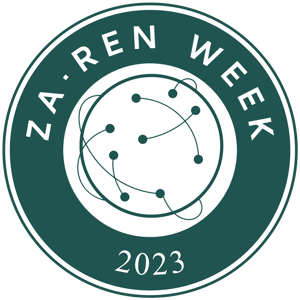Speaker
Description
Luci Abrahams (PhD), LINK Centre, University of the Witwatersrand, Johannesburg
Co-author: Mark Burke, LINK Centre
Abstract (from Working Paper)
The presentation will briefly set out the logic, argument and considerations with respect to creating digital research infrastructure (DRI), building on the intentions and focus of the South African Research Infrastructure Roadmap (SARIR). In the past ten years since adoption of SARIR, those research infrastructures have evolved and progressed. Missing from the landscape is digital research infrastructure, a necessary foundation for advancing commercialisable innovation, the practice of open science and social benefits from innovation.
At present, the science and innovation landscape is characterised by highly variable research management capabilities, ranging from early stage digitalisation in some disciplines and fields, to the emergence of digital datasets and databases supported by infrastructure in the nascent stage of development, to established portals and data platforms in a limited number of disciplines and fields. Investments in, and efforts to develop, strengthen and expand such infrastructures are fragmented and isolated, losing out on opportunities for scaling up and accelerating digitally supported research, through the consolidation and concentration of resources.
Furthermore, bridging digital research infrastructure with other forms of national research infrastructure can take South Africa into fields of science, technology and innovation where it was not previously a player, promoting virtualisation, visibility, visualisation and valorisation, what we term “the four V’s”. In this paper, virtualisation refers to making artefacts, data, records, published and unpublished work, as well as research instruments, tools and virtual laboratories, available and easily accessible online, in public and in secure user-only access formats. Visibility, including visibility within particular research communities, and more broadly, arises from the practice of making knowledge available in a range of digital formats. Visualisation is made possible through the application of visual design software to any form of artefacts, data or publications, thereby increasing the capacity of researchers to make their work understandable and increasing the capacity of readers to interpret and build on the work. Valorisation is the desired end state of the many processes that apply to making research more widely valuable, beyond the research producer/creator. Each of the four V’s alone, and collectively, brings powerful capacities into the science system.
Digital research infrastructure can provide the basis for transforming current scientific knowledge production capabilities and practices, by shifting from relatively limited knowledge sharing to extensive data and methodological sharing, thereby empowering the scientific community in many ways, including in applying new methods and techniques of scientific discovery, in generating new research questions, and in answering old and new questions in ways not previously possible.

